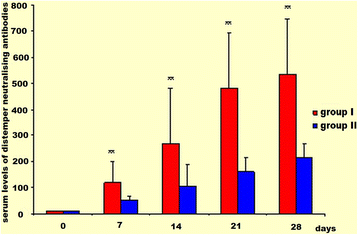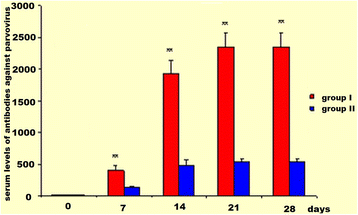
Background
Vaccinations activate the adaptive immune process to provide lasting immunity to disease. Dogs and cats get vaccinated to a wide range of pathogens with the goal of high antibody titers and long duration of immunity (DOI). While generally successful, there are times vaccinations FAIL, or fail to provide the desired DOI.
Vaccination failures and low DOI have been reported due to vaccination with concurrent disease, infection, stress, poor diet, and immunosuppressive medications (1). More recently, focus has turned to immune system activation. When the immune system is activated, its ability to respond to new challenges (vaccines) is compromised.
Recent Research
Recent research has concluded that the state of the host is very important PRIOR TO the administration of a vaccine. Specifically, the patient needs to be healthy and NOT in an inflammatory response. A study looking at this very subject in dogs was recently published (2). Their findings:
Inflammation, even subclinical, can result in the development of an immunological risk group, in which vaccination fails to provide sufficient immunity.
Two groups of dogs being administered vaccines, those with no inflammation (Group 1-red) and those in an inflammatory state (Group 2-blue) were compared for vaccine efficacy and resulting antibody titers.

Distemper
Antibody titers were significantly lower in Group 2 (blue) than in Group 1 (red),
indicating an activated inflammatory state impairs vaccination efficacy.

Parvovirus
Antibody titers were significantly lower in Group 2 (blue) than in Group 1 (red), indicating an activated inflammatory state impairs vaccination efficacy.
What you can do
The inflammatory state can quickly be assessed by measuring acute phase proteins (APP). In dogs, C-reactive protein (CRP) is the major APP, whereas in cats it is haptoglobin (HPT). Prior to immunization an evaluation of the patient’s APP will determine if the immune system has been activated. If activated, resolve source of inflammation prior to vaccination whenever possible to maximize chances of success.
In addition to pre-vaccination, identifying and screening for systemic inflammation has numerous benefits for your patients.
References:
- Povey, C (1986) Distemper vaccination of dogs: factors which could cause vaccination failure. Can Vet J
- Romiszewski, P (2018) Effects of subclinical inflammation on C-reactive protein and haptoglobin levels as well as specific humoral immunity in dogs vaccinated against canine distemper and parvovirus. BMC Vet Res
